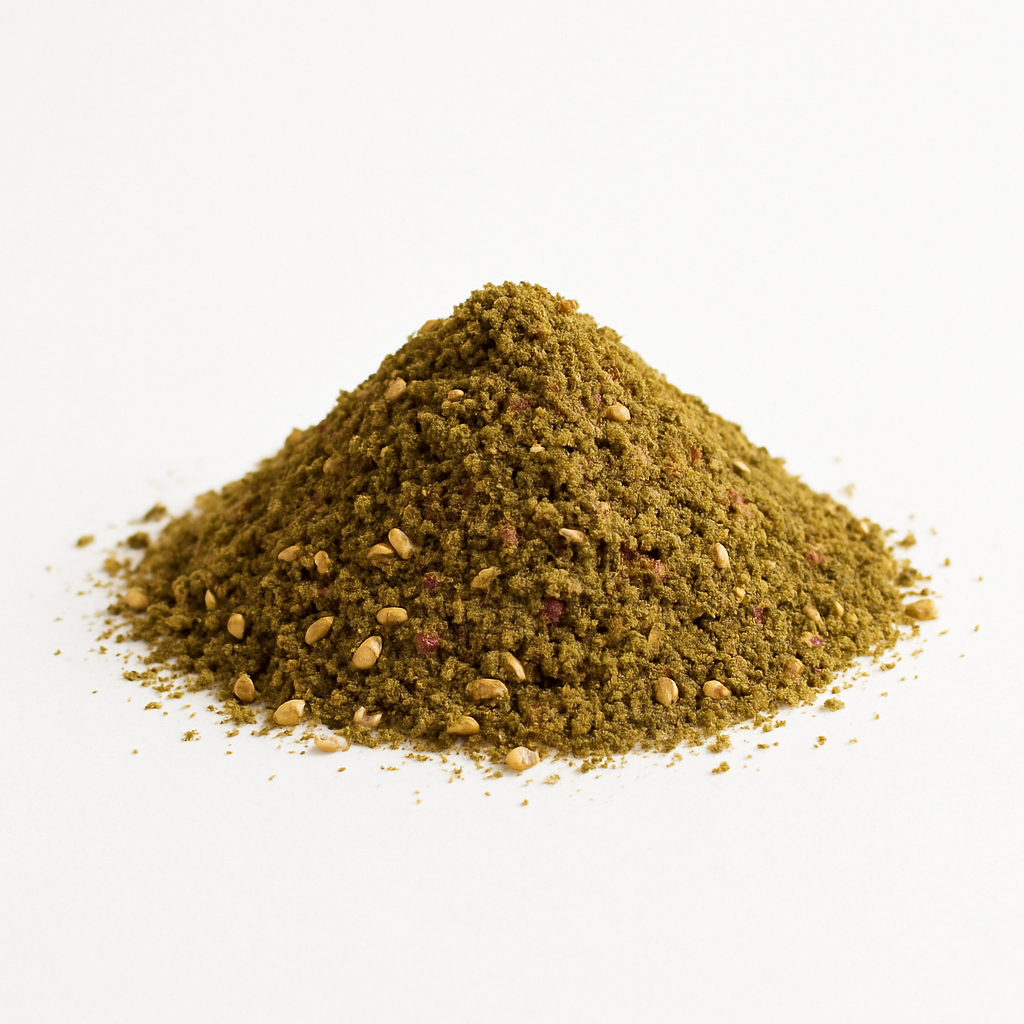Wadi
Za'atar
Za'atar
Couldn't load pickup availability
Primary Uses:
1. Culinary:
- As a seasoning for meats, vegetables, and breads
- As a topping for hummus and other dips
- As a flavoring for marinades and dressings
2. Flavoring:
- Adds a savory, earthy flavor to dishes
- Complements the flavors of olive oil and lemon
3. Aroma:
- Has a strong, herbal aroma that is reminiscent of thyme and oregano
- Can be used to add depth to the aroma of dishes
Other Uses:
1. Culinary garnish: Za'atar is commonly used as a seasoning in Middle Eastern cuisine, particularly in Lebanon, Syria, Jordan, and Palestine. It is often sprinkled on bread, salads, and meat dishes.
2. Medicinal uses: Za'atar has been used in traditional medicine for its anti-inflammatory and antioxidant properties. It is believed to help with digestion, boost the immune system, and improve cognitive function.
3. Religious uses: Za'atar is mentioned in the Bible as one of the herbs used in the holy incense. It is also used in Jewish and Muslim religious ceremonies.
4. Folklore uses: In some cultures, za'atar is believed to have mystical properties and is used in rituals and spells.
5. Ornamental uses: Za'atar plants have attractive leaves and can be grown as ornamental plants in gardens.
6. Insect repellent: The essential oils in za'atar are believed to repel insects, and the plant is sometimes used as a natural insecticide.
7. Dyeing agent: The leaves of the za'atar plant can be used to create a yellow dye for textiles.
Caution:
1. Limited availability in some regions
2. May cause allergic reactions in some individuals
3. Strong flavor may not be appealing to everyone
4. Short shelf life compared to other spices
5. May be expensive in some markets
6. Difficult to find authentic, high-quality za'atar
7. May not be versatile enough for some cooking styles or dishes
8. Some varieties may contain additives or preservatives.
Share


